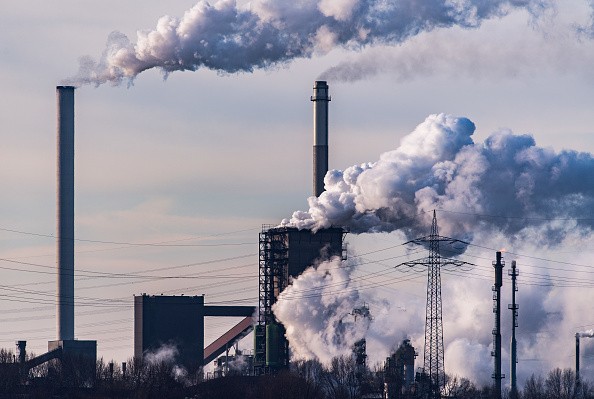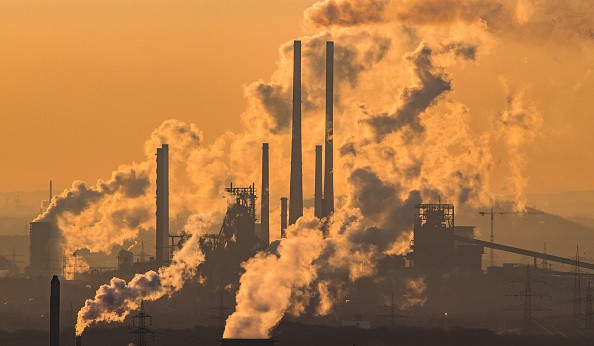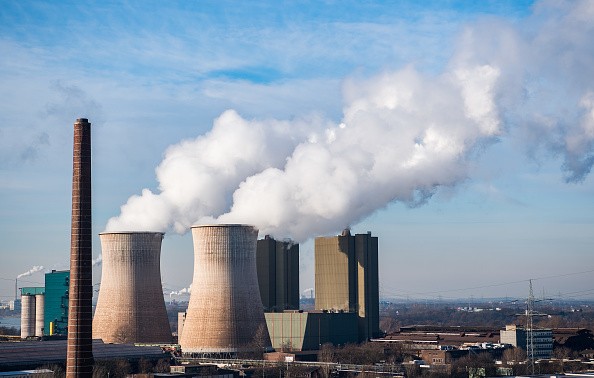Rick Karas looked online to see whether a rusted gas canister he found near his house in the Midwest of the United States was worth anything. Surprisingly, it became a sought-after product in the fight against climate change.

His container, about the size of a basketball, was packed with CFCs (chlorofluorocarbons), a potent greenhouse gas that is entirely lawful to own but prohibited from manufacturing for decades.
In the absence of a legislative requirement to destroy the abundant existing stockpiles, a few firms have stepped in to track down the gases in a process supported by the sale of carbon credits earned from the destruction of the chemicals.
CFC Stockpile
Karas contacted a firm called Tradewater online, and one of its employees came to his house in Peotone, Illinois, about an hour's drive from Chicago, to pick up the can.
He had a $100 cash in his hand minutes later, and the gas-once used in vehicle air conditioners and refrigerators and packaged in cans that leak over time-was on its way to the pyre.
"I'm in excellent spirits. But, of course, it benefits the environment if you have a little money in your pocket." Karas, a beekeeper, told AFP that he was entirely ignorant of the climate link.
The Chicago-based company wants it that way.
Related Article : Ozone Layer Wins! Emission of Dangerous CFC Halted
Supplies

They don't specify their purpose in web advertising aimed at potential sellers, and they even operate under a different name, Refrigerant Finders, to avoid a politically contentious topic in the United States.
Chad Dorger, who picked up Karas's tank, said that while 80% of customers don't care what happens to their gas, the remaining 20% may be difficult.
"They'll flatly refuse to sell, stating, "No, I want this to be used." Alternatively, I don't believe in the global warming scam, "he stated
Despite this, the taming of CFCs has been one of humanity's patchwork efforts to combat the anthropogenic emissions that fuel bigger storms, drier droughts, and the enormous, catastrophic wildfires that have swept across the globe this summer.
The United Nations touts the 1987 Montreal Protocol as the "only UN convention ever signed by every country on Earth" since it prohibits the production of CFCs from restoring a thin layer of ozone in the atmosphere that protects life on Earth from cancer-causing UV radiation.
CFC
It's difficult to argue with the reasoning. CFCs are a potent greenhouse gas that traps heat 10,000 times more effectively than carbon dioxide, in addition to corroding the ozone layer.
CFC concentrations in the atmosphere declined consistently until around 2012 when the Protocol went into force, but scientists were surprised to learn in 2018 that the rate of decline had slowed by half in the previous five years.
Factories in eastern China were implicated. The ozone layer's healing process looked back on track once sources ceased CFC manufacturing in that region.
Few people oppose the destruction of CFCs, but carbon offsets are more complex.
CFC Producing Companies

A polluting firm or individual purchases a credit equal to one metric ton of CO2, with the money flowing directly or indirectly towards an emissions reduction strategy, such as tree planting or renewable energy investment.
However, some opponents charge that large company is paying for a fast fix rather than attempting to remodel their operations' environmental effect and that some bungled offset schemes have failed to deliver.
"For some diehard environmentalists, that's granting someone the license to pollute, and we shouldn't pollute," said Michael Moore, an economics professor at George Washington University.
The leaders of Tradewater, on the other hand, are extremely clear about what they do and why they do it.
"This refrigerant will seep into the atmosphere if firms like ours don't destroy it," said chief operating officer Gabe Plotkin to AFP.
"There is no requirement from the government to do so. There isn't any monetary incentive to do it. And in other situations, there isn't even a desire to do it, "added Plotkin.
For more environmental news, don't forget to follow Nature World News!
© 2026 NatureWorldNews.com All rights reserved. Do not reproduce without permission.





